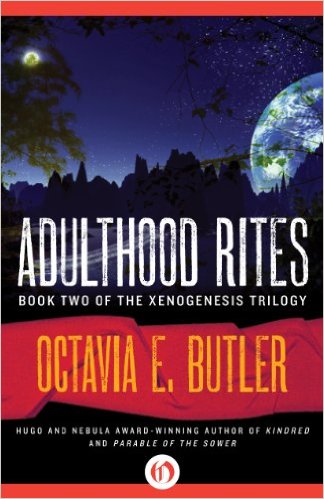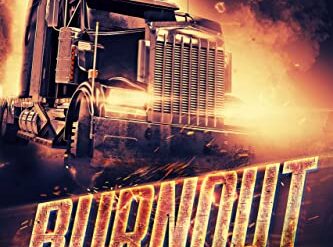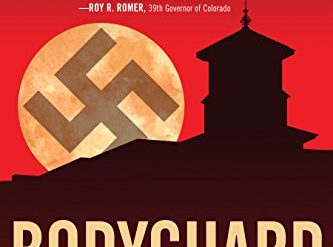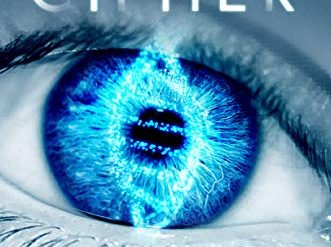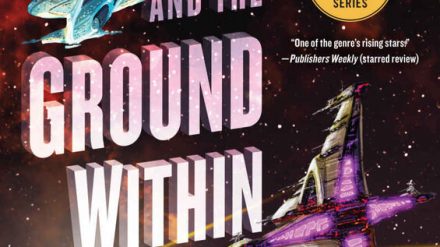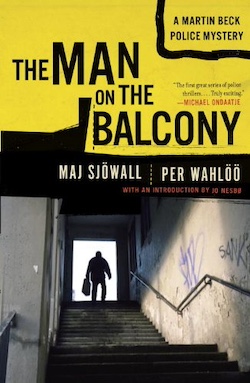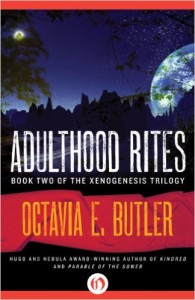
In this worthy sequel to Dawn, the opening book in Octavia Butler’s much-admired Xenogenesis Trilogy, the focus shifts from Lilith Ayapo to her son Akin (“AH-keen”). The infant is a “construct,” the product of a Human mother and father, and the three other Ooankali individuals (male, female, and a third gender) who are necessary to bring Akin into the world. As a construct, Akin possesses many of the extraordinary powers of the alien species even though he looks very much like a Human: he begins speaking in complete sentences as an infant, he remembers everything he’s ever seen or done (including his experiences in Lilith’s womb), and he is capable of killing Humans with the sting of his tongue.
Science fiction? Maybe. But there’s little science in this engrossing trio of novels. Most would call this science fantasy.
Adulthood Rites (Xenogenesis Trilogy #2) by Octavia E. Butler (1988) 336 pages ★★★★☆
However it might be characterized, this is, indeed, a very strange tale. The conceit on which it is based is that humanity has virtually destroyed itself and devastated Planet Earth in the process, leaving tiny pockets of survivors scattered across the globe. The Ooankali have descended on Earth in what they consider a mission of mercy, intent on allowing the human race to go extinct because of its self-destructive behavior. Contradiction in our genes between Intelligence and Hierarchy. The newcomers have been using their extraordinary powers at sensing and manipulating DNA to maneuver a handful of Humans into producing constructs like Akin who will join them on their quest to scour the universe for new opportunities to absorb other sentient species.
Adulthood Rites dwells on the increasingly violent conflict between the Oankali towns, which include some humans like Lilith, and the “resisters” who are scattered about the countryside and essentially warring among themselves. Akin seeks out — and eventually finds — a way to persuade most of the resisters to cease their attacks.
Octavia Butler writes with skill and a fine-tuned if dark appreciation for the self-destructive behavior of the human race.
For more great reading
This book is a prime example of Octavia Butler’s prescient science fiction.
For more good reading, check out:
- These novels won both Hugo and Nebula Awards
- The ultimate guide to the all-time best science fiction novels
- 10 top science fiction novels
- The top 10 dystopian novels
- Eight new science fiction authors worth reading now
You might also check out Top 10 great popular novels reviewed on this site.
And you can always find my most popular reviews, and the most recent ones, on the Home Page.

